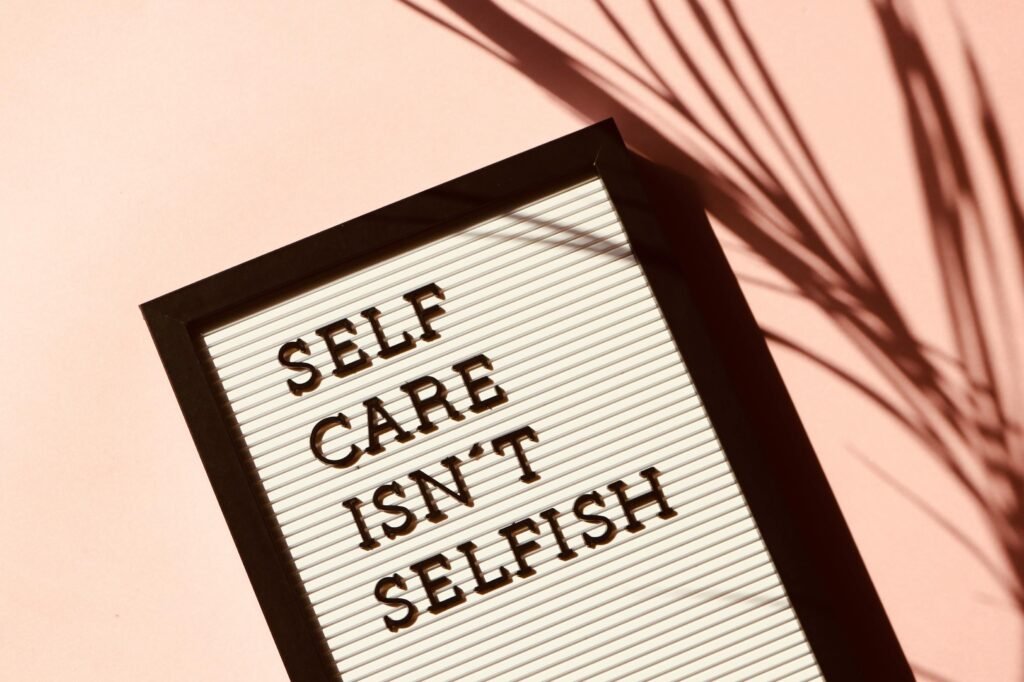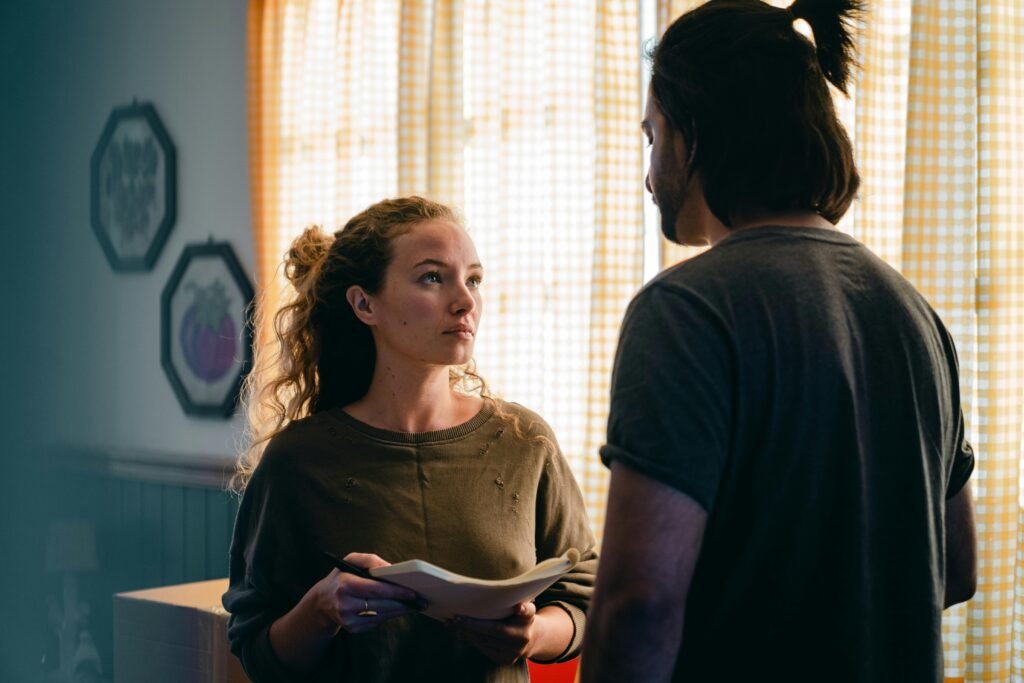Love isn’t always a fairytale. It’s messy, beautiful, painful, and incredibly rewarding. But sometimes, you have to stumble, fall, and get your heart shattered to truly understand what love is all about. I’ve been there, and I’ve learned the hard way. Now, I’m sharing 31 love lessons that will help you avoid the mistakes I made and build the relationship you truly deserve!

Understanding Yourself Is Key
Before you can truly love someone else, you’ve got to understand yourself. It sounds cliché, but it’s the foundation of any healthy relationship. When I was younger, I jumped from one relationship to another, thinking love would fill the emptiness I felt. Spoiler alert: It didn’t. It took a lot of soul-searching to realize that I had to be clear about what I wanted and needed from a relationship before expecting someone else to fulfill that role.
Knowing what you want is just the beginning. Self-love plays a massive role in building a strong relationship. When you value yourself, you naturally set higher standards and refuse to settle for anything less. I learned that the hard way after years of compromising my happiness to keep someone else around. It’s not selfish; it’s necessary. Loving yourself means understanding your worth and having the courage to walk away from what doesn’t serve you.
And then there’s the whole boundary thing. I used to be terrible at setting boundaries because I didn’t even know what mine were. But when you start respecting your own needs and communicating them clearly, it’s like a switch flips. Suddenly, you’re attracting people who respect you for who you are, not who they want you to be. Boundaries aren’t walls; they’re bridges that connect you to the right people.

Key Takeaways:
- Understand what you want before entering a relationship.
- Self-love sets the foundation for healthier connections.
- Setting and communicating boundaries is crucial for mutual respect.
Communication Solves Almost Everything
If there’s one thing I wish I’d figured out sooner, it’s that communication really does solve almost everything. But not just any communication—honest, uncomfortable, and sometimes brutally awkward conversations. I used to bottle things up, thinking I was keeping the peace. In reality, I was just letting resentment build until it exploded at the worst moments. It’s tough to be honest, especially when you’re scared of hurting someone’s feelings. But saying what’s on your mind is the only way to prevent misunderstandings from turning into massive blowouts.
Listening is just as important as speaking. And I don’t mean the kind of listening where you’re just waiting for your turn to talk. I mean actually paying attention, understanding where the other person is coming from, and validating their feelings. It’s something I had to learn the hard way after several failed relationships where I only heard what I wanted to hear. Real listening isn’t about agreeing; it’s about making the other person feel heard.
And here’s the kicker: avoiding conflict is way worse than having it. I used to think a lack of arguments meant a relationship was good, but it was actually a sign of avoidance. Healthy conflict means you care enough to work things out instead of sweeping issues under the rug. Addressing problems head-on, even if it’s uncomfortable, shows you’re willing to fight for the relationship instead of running from it.

Key Takeaways:
- Be honest about your feelings, even when it’s difficult.
- Listen to understand, not just to respond.
- Avoiding conflict only creates bigger problems down the road.
Trust Is Earned, Not Given Freely
Trust is one of those things that’s incredibly easy to break but painfully slow to rebuild. I used to think trust was something you just handed over to someone once you cared about them. But the truth is, real trust is earned through actions, not just words. And if you’re not careful, one wrong move can shatter it completely. Whether it’s a white lie or a major betrayal, the damage can feel permanent. It’s why I’ve learned to be more cautious about who I trust and why I value honesty above all else.
Being honest, especially when it’s uncomfortable, is non-negotiable if you want a relationship to thrive. I’ve had moments where I hid the truth because I didn’t want to hurt someone’s feelings or deal with the fallout. But those small lies piled up, creating cracks in the foundation. When you’re upfront, even about your flaws and mistakes, it builds a sense of safety. It shows your partner that you respect them enough to be real, even when it’s not easy.
And when trust is broken, rebuilding it isn’t a quick fix. It’s a long, grueling process of proving yourself again and again. Consistency is everything. You can’t just say you’re trustworthy—you have to show it, repeatedly, through your actions. It takes patience from both sides, but if you’re willing to put in the work, trust can be mended. It may never be the same, but it can be strong enough to move forward.

Key Takeaways:
- Trust is built over time and can be broken in seconds.
- Honesty, even when uncomfortable, is crucial for building trust.
- Rebuilding trust requires patience, consistency, and effort.
Actions Speak Louder Than Words
I’ve lost count of how many promises I’ve heard that were never kept. And the thing is, words are easy. They roll off the tongue without much effort. But actions? They take real commitment. I used to get swept away by beautiful words and sweet promises, only to be disappointed when the effort didn’t match. That’s when I realized—promises are meaningless without follow-through. If someone truly cares, their actions will always speak louder than their words.
One of the biggest lessons I learned is to pay attention to how someone treats you, not just what they say. It’s not enough for someone to say they love you if their actions constantly make you feel neglected or unimportant. I had to start judging people by their consistency and effort, not just their charming words. And once I started doing that, I saved myself from a lot of unnecessary heartbreak.
Consistency is the truest form of loyalty. It’s easy to show love when things are going great, but it’s what happens during the tough moments that really counts. When someone keeps showing up, even when it’s hard, that’s when you know their words mean something. Because anyone can make promises, but only a few can truly live up to them.

Key Takeaways:
- Words mean nothing without consistent effort.
- Actions reveal true intentions more than promises do.
- Consistency is the ultimate proof of loyalty.
Boundaries Matter
Learning to set boundaries was a game-changer for me. I used to think saying “no” was selfish, especially when I cared deeply about someone. But constantly saying “yes” when I really wanted to say “no” left me feeling drained and resentful. The truth is, if you don’t set boundaries, you end up sacrificing your own happiness for someone else’s comfort. And that’s a recipe for emotional exhaustion. Learning to say no without feeling guilty was tough, but it was one of the best things I ever did for myself.
Boundaries aren’t just about saying no; they’re also about respecting each other’s personal space and time. I’ve been in relationships where everything felt so intertwined that I lost my sense of individuality. It’s healthy to have time apart, to pursue your interests, and just be yourself without feeling guilty. Respecting your partner’s boundaries and having yours respected in return is essential for a balanced, fulfilling relationship.
When boundaries are clear and respected, resentment doesn’t have a chance to grow. Instead of feeling like you’re giving too much and getting too little, you feel understood and valued. And when boundaries are crossed, having the courage to address it can save you from long-term resentment. It’s all about mutual respect, communication, and understanding that boundaries aren’t about pushing people away; they’re about creating a healthier way to be together.
Key Takeaways:
- Saying “no” without guilt is essential for emotional well-being.
- Respecting personal space and time helps maintain individuality.
- Clear boundaries prevent resentment and emotional exhaustion.
Love Isn’t Possession
I used to think that love meant holding on tight, making sure the person I cared about never slipped away. But that’s not love—it’s control. Trying to keep someone under your thumb only pushes them further away. Real love is about letting go of that need to control and embracing acceptance. It’s about understanding that your partner is their own person with their own dreams and desires. Once I stopped trying to control everything, I felt more at peace.
Jealousy was another monster I had to battle. I’d get so caught up in my insecurities that I couldn’t see things clearly. I’d mistake their independence for rejection, and it nearly ruined a good thing. It took me a while to realize that jealousy isn’t about what someone else is doing—it’s about what you’re feeling inside. Dealing with my insecurities made me realize that real love isn’t about owning someone; it’s about supporting them.
True love is about freedom, not ownership. It’s about giving your partner the space to be themselves and trusting that they’ll choose you. And when they do, it’s because they genuinely want to be with you, not because you’ve pressured or guilted them into staying. Learning this lesson the hard way made me appreciate genuine love so much more.
Key Takeaways:
- Love is about acceptance, not control.
- Jealousy often reveals insecurities you need to address.
- True love allows freedom and choice, not ownership.
Forgiveness Is a Superpower
Forgiveness was one of the hardest lessons I had to learn. I used to think holding a grudge gave me some sort of power over the person who hurt me. But in reality, it only poisoned my own heart. The bitterness would eat away at me, making me angrier and more distant. I eventually realized that holding grudges harms you way more than it harms your partner. It’s like drinking poison and expecting the other person to feel the pain.
Forgiving someone doesn’t mean you forget what happened or act like it never hurt. It means allowing yourself to heal and move forward. I had to learn that forgiveness is about setting myself free from the weight of past pain. It’s about acknowledging what happened, accepting that it hurt, and deciding to let go for my own peace of mind. When you do that, you’re not letting the other person off the hook—you’re freeing yourself from being shackled to the past.
Practicing forgiveness has strengthened my relationships more than I ever imagined. It doesn’t happen overnight, but the effort is worth it. It taught me to communicate better, to accept apologies when they’re genuine, and to offer them when I’ve messed up. Forgiveness isn’t weakness; it’s strength. And when both partners can forgive and move forward, the bond only grows stronger.

Key Takeaways:
- Holding grudges harms you more than your partner.
- Forgiveness is about healing, not forgetting.
- Practicing forgiveness strengthens your bond and promotes growth.
Never Settle Out of Fear
I’ve made the mistake of clinging to relationships that weren’t right for me simply because I was terrified of being alone. It’s easy to convince yourself that something is better than nothing, but settling out of fear only leads to more pain down the road. I learned the hard way that loneliness is way better than being stuck in a relationship that drains you. Being alone gives you space to heal, grow, and truly understand what you deserve.
Desperation clouds your judgment and makes you overlook red flags you would’ve noticed otherwise. I’ve stayed in toxic relationships longer than I should have because I was too scared to be alone. When you’re desperate, you start accepting treatment that’s beneath you, just to avoid the emptiness of solitude. The truth is, being alone isn’t the enemy—settling for less than you deserve is.
The best lesson I learned was to trust the timing of my life. Just because you’re not in a relationship now doesn’t mean you never will be. Rushing into something just to fill the void only keeps you from finding the love you truly deserve. Waiting can be frustrating, but it’s worth it. Because when the right person comes along, you’ll be ready to embrace them without the baggage of past fears and desperation.
Key Takeaways:
- Loneliness is better than being stuck in a toxic relationship.
- Desperation blinds you to red flags and lowers your standards.
- Trust the timing of your life—good things come when you’re ready.

Overcoming Jealousy
Jealousy used to be my constant, unwelcome companion in relationships. It would creep in during the most innocent moments, twisting my thoughts and making me question everything. But I eventually realized that jealousy wasn’t about my partner’s actions—it was about my own insecurities. Recognizing this was the first step toward healing and building a healthier relationship.
I learned that trying to control or monitor my partner’s every move only pushed them further away. Instead, I had to work on myself. Building confidence, working on my self-esteem, and acknowledging my worth made all the difference. It’s not easy to admit that the problem might be within you, but once you do, you can start working toward a genuine solution.
Communication also played a huge role. Being honest about my feelings without sounding accusatory made a world of difference. When I opened up and allowed my partner to understand where I was coming from, it created a deeper emotional connection. Overcoming jealousy wasn’t about controlling my partner—it was about understanding and healing myself.
Key Takeaways:
- Jealousy often stems from personal insecurities.
- Working on your self-esteem can help diminish feelings of jealousy.
- Honest communication strengthens emotional connection and trust.
Conclusion
Looking back, every single one of these lessons came from moments of heartache, frustration, and even regret. But those hard times taught me what love truly is and what it definitely isn’t. Love isn’t about control or perfection—it’s about understanding, patience, trust, and choosing each other over and over again, even when it’s difficult.
I’ve made my fair share of mistakes, but I’ve also grown from them. And if sharing these lessons saves you from even a fraction of the pain I went through, then it’s all been worth it. Relationships are complicated, messy, and sometimes downright exhausting. But when you find someone who’s willing to grow with you, it’s also the most beautiful journey you’ll ever take.
So, take these lessons to heart, learn from my mistakes, and build the kind of love that’s genuine, lasting, and worth fighting for. Because you deserve nothing less
